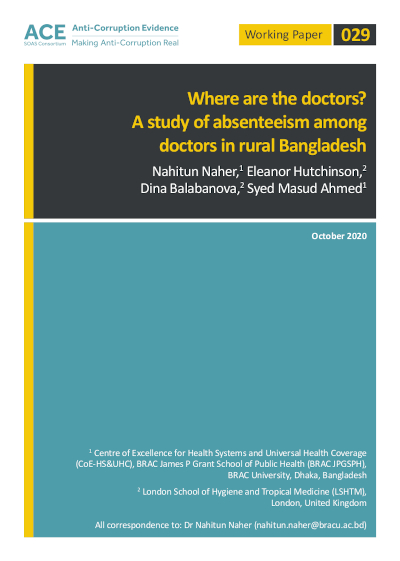
Publication Type: Working Paper
Countries: Bangladesh
Authors: Nahitun Naher, Eleanor Hutchinson, Dina Balabanova, Syed Masud Ahmed
Publication date: October 2020
Keywords: Health
Absenteeism – unauthorised employee absence from the workplace – is one of the most common forms of corruption among frontline health workers. Despite having an extensive infrastructure, the healthcare system in Bangladesh suffers from staff shortages, maldistribution of the workforce, and poor retention of employees and service providers, especially in rural and remote areas. Among doctors in particular, absenteeism has also been a long-standing problem.
Although absenteeism has long been recognised by the Bangladesh national authorities, and multi-lateral and donor agencies, the regulatory approaches that they have employed have so far failed to yield successful results. This is, in part, because they have largely failed to consider or manage the challenges of implementing transparency and accountability measures in the face of poorly funded health systems, misaligned incentives and the influence of socio-political networks on the distribution of urban and rural positions.
This study has been conducted to support the development of a new approach to anticorruption that takes the socio-economic and political context into account in the construction of novel interventions. It is a qualitative study that seeks to explore the realities of working in the Bangladesh health system, with a particular focus on the factors that influence and shape the nature of doctors’ absenteeism in rural facilities.

